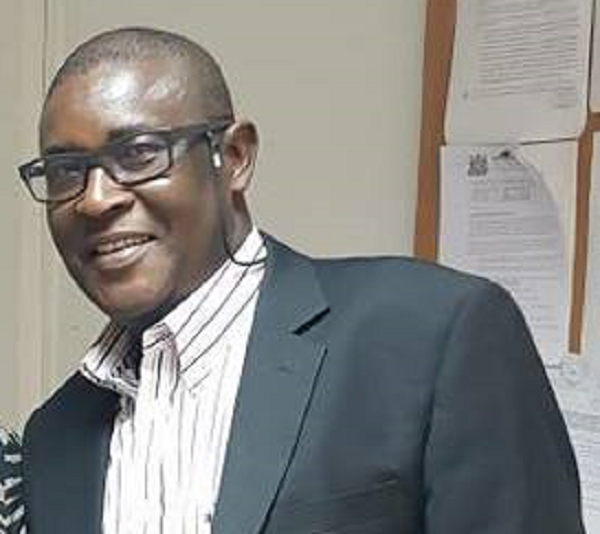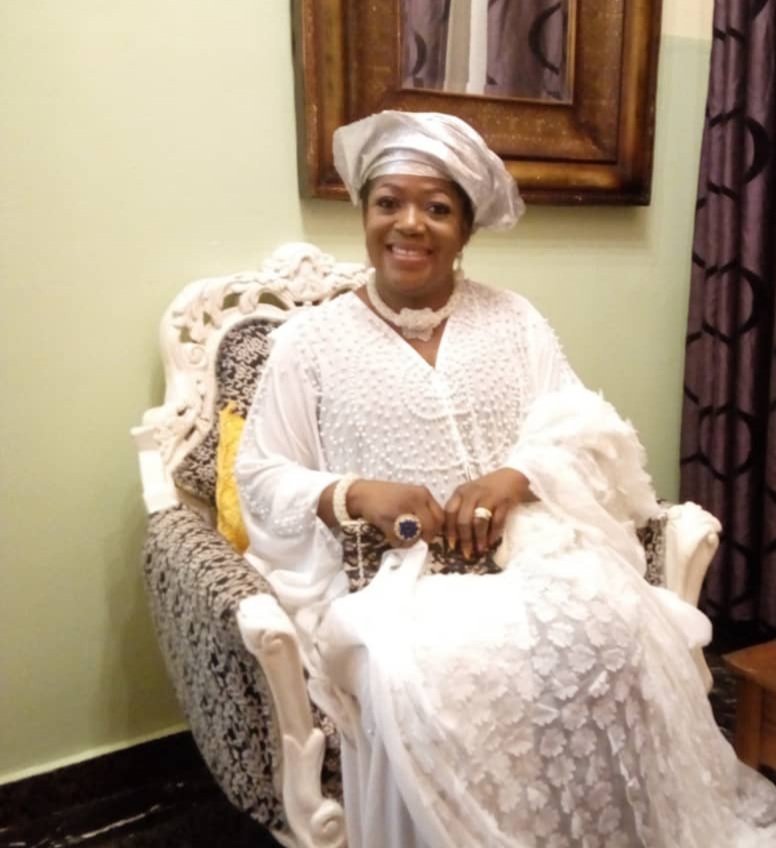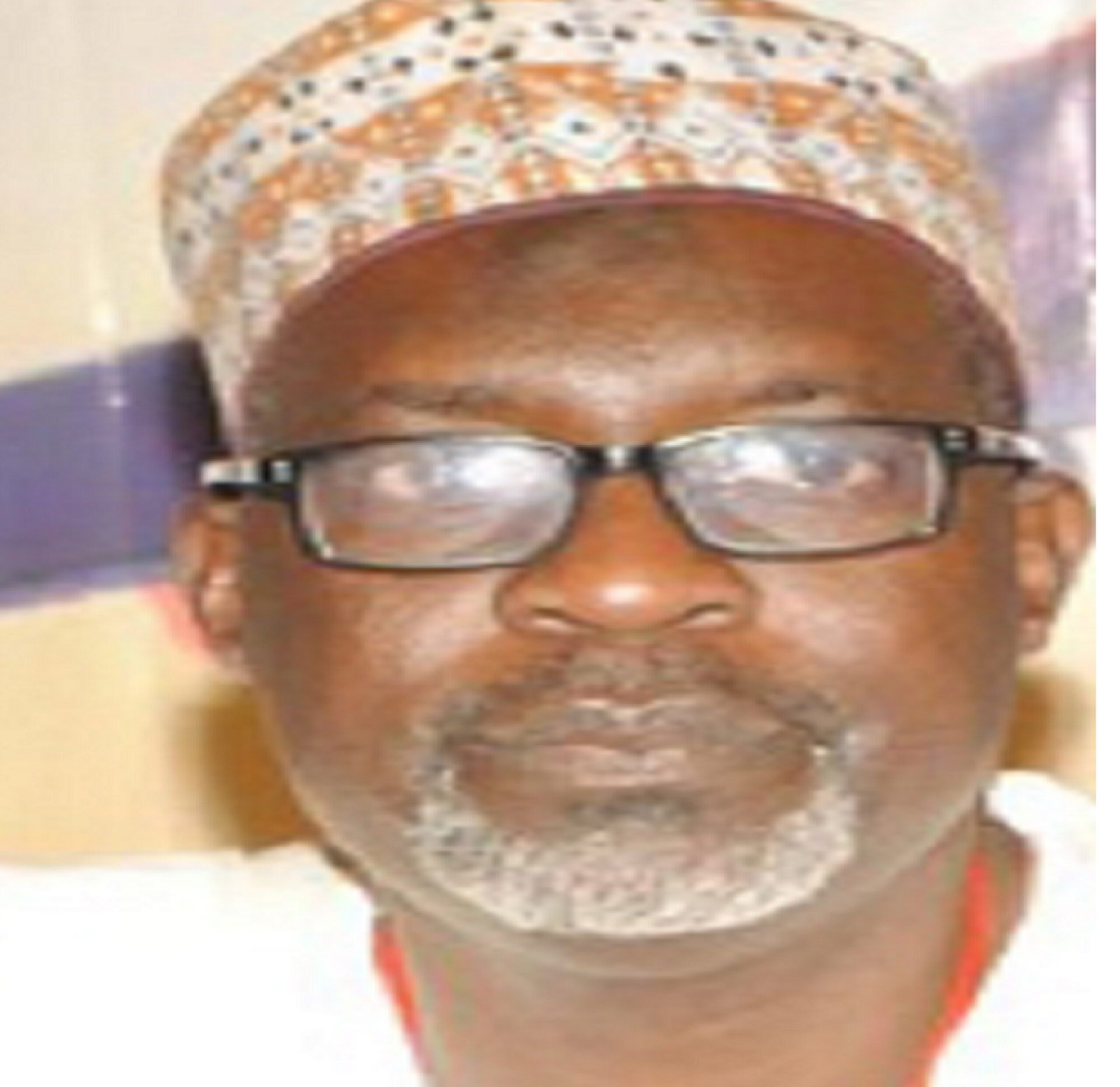Public Servants No Longer Care About Developing Nigeria – Dr. Maduka

By Kenneth Jukpor
Until his retirement last week, Dr. Sunny Oby Maduka was the Chief Internal Auditor of the Nigeria Ports Authority (NPA) Tin Can Island Ports Complex. In this interview with MMS Plus, he spoke extensively on the numerous challenges in the maritime sector, ranging from leadership and administrative deficits and infrastructural deficiencies. He also compares the ports sector during the pre-concession era to the status quo.
Excerpts:
What were the major challenges you faced while in service as an auditor?
Auditing job is a thankless job, because nobody wants to be checked. I never set out to do my work to witch-hunt anybody. I did it in such a way that we could corroborate on the issues. If I see anything wrong, I talk to you like a human-being. We will sit down and talk about the issue together and we come out with the best solution. This is because I look at the audit department to be the same with other departments.
One thing you should understand is that we have one vision to see that NPA is laudable in all aspects. It has not been easy I think my life has been exposed to danger several times with the most notorious in Warri. The work is risky but the issue is that you have to work with human heart because everybody wants to be respected. Even if you are checking somebody, you must check the person with respect, don’t attack him with the mind-set that you want to dictate for him/her. In a situation where you come across certain anomalies don’t first tag it as fraud. First call the person because sometimes you could discover that it was un-intentional or calculating errors. Where I discover something that is very bad, I do my work by writing report and the management takes it from there.
What was the structure you met on ground when you assumed office three decades ago and how do you compare with what is obtainable at NPA today?
When we came in there was this bonding, we loved one another. We worked as a team because we genuinely wanted to develop the country, you could see the zeal. I am about the 80’s everybody wants to develop the country. I also discovered then that people who were appointed where the people within the industry, there was no nepotism or tribalism; it was all about merit at that time. We all came into NPA without bribing anybody; you just go for the interview write your exams and come in. So the difference then was that you come in because you had something to contribute but now we have gotten it wrong in terms of how we employ people. When you employ people based on segregation, you shouldn’t expect the person to put in the best. When you employ people not based on competence but based on where the best is coming from you don’t expect the person to put in his best. I think we should go back to the old system where people were employed based on merit and competence not on this federal character system. Federal character is one of the problems we are having because it makes us jettison merit; it is all about where people are from. What about where you don’t have such competence within that state you still go on to pick the person.
We also joined the NPA system where everybody was eager to study and learn and also learn from the superiors but now it is not the same because some people are coming from a higher place more than others, some came with different ideologies. Some came because they just want to be part of the system not to do their best. Things like these don’t happen in a private company, a private company cannot employ somebody they know is not competent. Here you discover that experts are not giving chance to do what they are supposed to do.
Now that you are leaving, what will you say were your experiences, highpoints and down times?
I joined NPA with testimonial because my West African Examinations Council (WAEC) result was not out at that time. But within that year, before the WEAC came out I took my A’ level and I manage to go further. I was catapulted from level 3 to 6, I was the smallest then, in fact the seat they gave me was as small as anything I had to add pillow whenever I wanted to sit down. That was how the journey started up till now I am a Chartered Accountant and also a PHD holder.
NPA has a lot of intellectuals in terms of expertise in the maritime sector and beyond but the management does not want to tap into them. We must take cognizance of merit; you don’t put square pegs in round holes. We have up to four PHD holders in NPA but nobody reckons them. I know I was the first among them but these people could be used. You can tap their knowledge because to have PHD in Nigeria is not easy. So these are the experiences you see in public sector and you don’t feel happy about that. The issue is always because of tribe or religion. There is sentiment everywhere and it is not going well in public service in Nigeria. It is one of the reasons I am going out painfully, it is bad that a country does not recognize creativity, innovation and people that could turn around the industry for good. Until we stop this, we would keep on blaming the system but who really is the system? We are the system! You have to implement the system based on ideology and of course here in Nigeria we do not have an ideology. Anybody can do anything based on where you come from or your connection.
Do you think the idea behind outsourcing for contractors to handle some projects instead of using the in house is for selfish reasons?
I don’t think so. Maybe it is because there are conglomerate of policies whereby a shift is not done in such a way that it will truncate what the plans are. China is having 100 years policy plans and other countries have long and short term plans. A country should be able to have a plan but what I discovered in Nigeria is that every party comes in with its own ideology, but it is not something you can say is a 20 years plan.
Subsequent governments come in with their 4 years plan, but ideally your policy should transcend to other generations. For instance a Chief Executive is appointed and he knows he is going to stay for 4 years so his idea and plans is just for 4 years. He is not looking beyond 4 years. So, it is all about evolving a system that we take cognizance of tomorrow not just today. We don’t have this and until we come to that position, it is going to be very difficult. In Nigeria we neglect geniuses and that is why we see foreigners coming here to poach some of our great minds. I decided not to travel it is not because I have not been poached. If all of us just jump out of the country, who will help the country this is why I am staying.
Nevertheless, the system you are in doesn’t even recognize you; instead they tend to pull you down. Something happened recently, I was to present a paper on Cabotage law in Ogun state and when I got to the hall I saw other agencies like, Nigerian Maritime Administration and Safety Agency (NIMASA), Nigerian Shippers’ Council (NSC), even the Federal Airports Aviation Authority (FAAN) sent people and except Western ports that sent two or three persons; I asked the organizer where is NPA. The answer he gave me shocked me. He said that he sent a proposal to NPA and they replied that it was not necessary to NPA. I was really shocked because if they actually understand what Cabotage law is I don’t think anybody could minute that it was not necessary. So these are some of things we saw in the system, we must have professionals in some professional sectors. NPA is a maritime industry, so you do not put any how person there, the same thing applies to other agencies. We must have people that have gone through the process practicalize it. People should be thinking of where next are we are going to take this organization to not what they are going to get from the organization. I can tell you that the organization does not understand what innovation and creativity is all about. They are not looking at what impact you’re going to create. They do not see the good will that you are extending to the rest of the world because your work is going worldwide.
What do you have to say about the ports infrastructure and operations?
Well the operation does not evolve from what I said because it is all about human beings. When you have the right human being in the right place the infrastructure and operations will function well. You cannot talk about Nigeria without talking about the citizen. We are supposed to be talking about the human elements, the people that are supposed to transform the infrastructure and operations you are talking about into high level.
We have concessioned the ports and the operation areas are now privatized. I think in terms of speedy delivery, equipments, man power, limit to bureaucracy, security of cargoes among others, things are better. The issue is that there are still things that are not there and the basic thing is the road and the networking. No port in the world succeeds without networking, it must be connected to the rail if you have a rail system connected to Tin Can it can pick 200 containers at a time.
Many countries are doing away with road transport. Dubai has gone further to what we call air cargo terminal whereby if you bring your goods and you don’t want it to go through the road or rail, they can air lift your cargo to anywhere you want. So things are supposed to be evolving and that is why it pains some of us that instead of us developing as others are doing, we are retarding in terms of development.
Look at the roads we are talking about, the rail system we are talking about; people have built on them and are using them to sell. These are infrastructures that should be used to ensure that cargoes at the ports are delivered in the appropriate time. You know the main essence of having cargoes is to deliver it to the appropriate destinations in the specified time. So if you have 1,000 cargoes and it is not reaching the destination, this is a big problem.
On the talk about 24 hours ports operation, where is the lighting in our ports, there is non for now! Some of the vehicles are dilapidated, no headlight. Talk about the issue of banking system, we do not operate 24 hours so the whole thing is still the problem. Look at the Information Communication Technology (ICT), how far have we gone with that? You see we are still jumping from one place to the other, while as a result of modern technology, human intervention is reduced because everything is done online. We don’t have scanning machines which should aid speedy examination of containers at the ports and all these are the challenges that boil down to capabilities of those who manage the ports.
Copyright MMS Plus.
All rights reserved. This material, and other digital content on this website, may not be reproduced, published, broadcast, rewritten or redistributed in whole or in part without prior express written permission from KINGS COMMUNICATIONS LIMITED.








